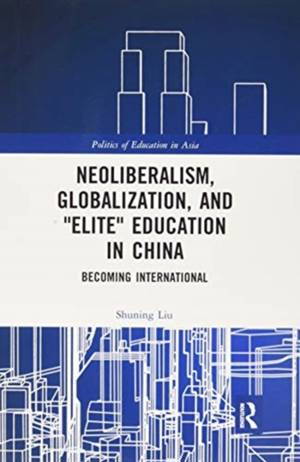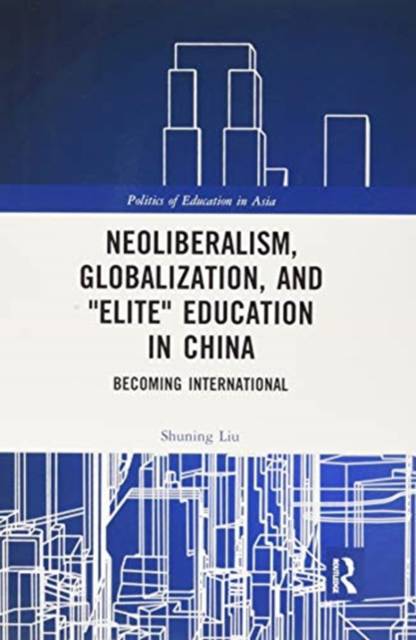
- Afhalen na 1 uur in een winkel met voorraad
- Gratis thuislevering in België vanaf € 30
- Ruim aanbod met 7 miljoen producten
- Afhalen na 1 uur in een winkel met voorraad
- Gratis thuislevering in België vanaf € 30
- Ruim aanbod met 7 miljoen producten
Omschrijving
This book examines the practices and effects of emerging international curriculum programs established by Chinese elite public high schools and supported by China's New Curriculum Reform and the Chinese-Foreign Cooperation in Running Schools (CFCRS) policy. Drawing on critical theory, the book applies sociological and anthropological approaches to the study of the educational practices of such curriculum programs and the rising Chinese elite class, as well as educational policy globally. Through analyzing a wide variety of data sources, this book focuses on examining how changing local and global contexts have influenced and shaped the educational opportunities, experiences, and aspirations of privileged urban Chinese students who are able to attend these programs and who hope to study at U.S. universities. In doing so, the book is intended to define the problematics of the internationalization of Chinese education and an emergent form of elite education in China, which are complex and embedded in the process of modernization in China.
Neoliberalism, Globalization, and "Elite" Education in China: Becoming International will appeal to undergraduates, postgraduates, and academics in the fields of curriculum studies, educational policy studies, sociology of education, and anthropology of education, as well as policymakers with an interest in globalization and education, education policy, and education and international development.
Specificaties
Betrokkenen
- Auteur(s):
- Uitgeverij:
Inhoud
- Aantal bladzijden:
- 196
- Taal:
- Engels
- Reeks:
Eigenschappen
- Productcode (EAN):
- 9780367784010
- Verschijningsdatum:
- 31/03/2021
- Uitvoering:
- Paperback
- Formaat:
- Trade paperback (VS)
- Afmetingen:
- 155 mm x 234 mm
- Gewicht:
- 272 g

Alleen bij Standaard Boekhandel
Beoordelingen
We publiceren alleen reviews die voldoen aan de voorwaarden voor reviews. Bekijk onze voorwaarden voor reviews.











